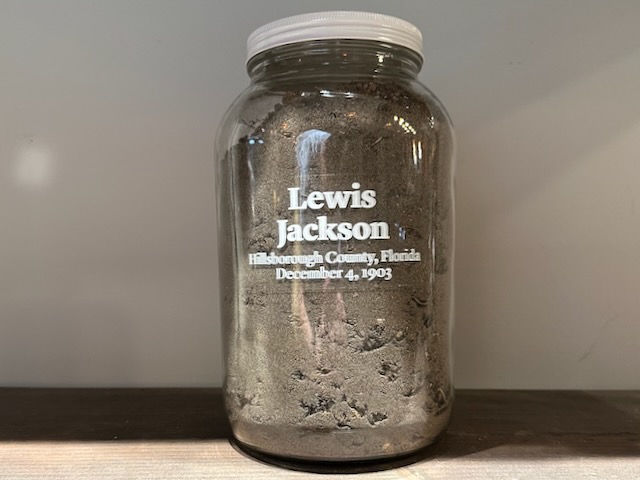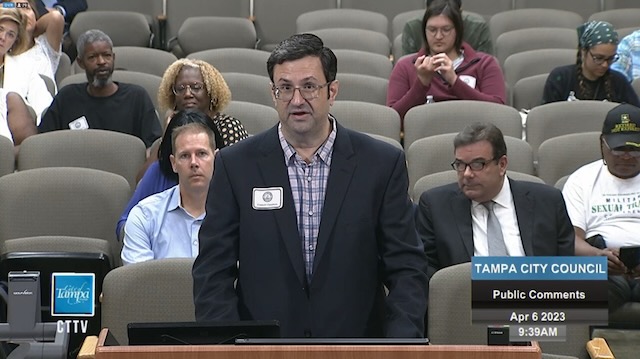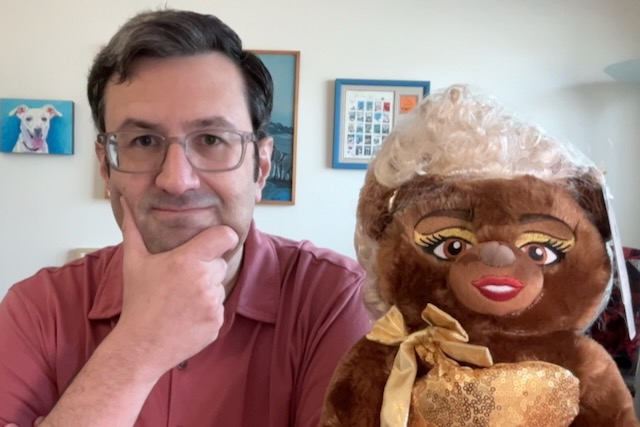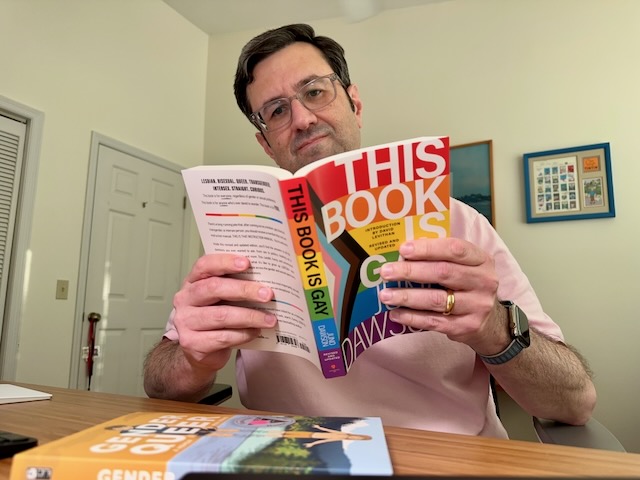April 2023
-

Our Dirty History on Display
At a fundraiser at the Portico Cafe1 Friday night, the Complimentary Spouse noticed something out of the corner of his eye and pointed at it. “There are somebody’s ashes on that shelf.” I looked and didn’t see an urn. “Where?” I asked. “Right there.” I looked again and saw what…
-

The Random Musings of a Random Volunteer
This is an extended version of something I posted on Facebook a few days ago. As an ACLU of Florida volunteer, one of my favorite things to do is to get out in the community, explain our mission, and advocate for change. I got to do that twice recently. Last…
-

My Out at Office Message
When my boss, Ben, signed into our Teams meeting yesterday, he didn’t see me. He saw a limited edition RuPaul teddy bear (thank you Build-A-Bear) sitting where I should be. He cracked up. I moved the bear. Being gay men, we were legally obligated to discuss this season of Drag…
-

This Book Is Gay. This Ban Is Grievous.
A week ago, the cowards at the Hillsborough County School Board banned “This Book Is Gay” from middle schools. It was only available at Pierce Middle School, and had been challenged by a single parent who didn’t have a child at that school — and was vetted by two committees…